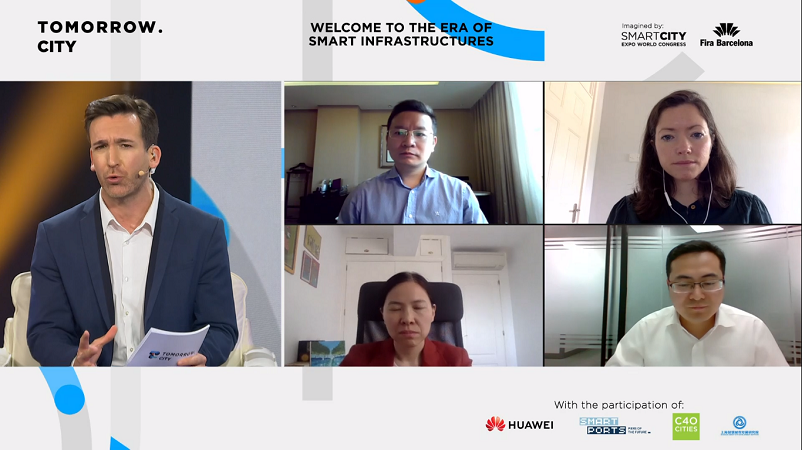How SME4SMARTCITIES will enhance sustainable infrastructure?

On May 27, a new event organised by Tomorrow.City was held, showing public initiatives and technological advances to make our infrastructures greener. All these may be attractive and of high interest for the cities that participate in the SME4SMARTCITIES project.
BIC Euronova, a partner in the SME4SMARTCITIES consortium, attended the conference "Real solutions to improve city infrastructures”. Tomorrow.City is a global center established in the city of Barcelona that helps advance the smart city industry by connecting cities with companies, promoting the development of talent, and generating momentum for sustainable and inclusive urban projects all over the world.
International experts in the areas of mobility infrastructures (ports and airports), urban planning, development of green initiatives, and smart city programs in China, participated in this event sharing new ideas and perspectives that are being applied in their countries of origin and in other cities around the globe. The issue of tactical urbanism was specifically addressed, which involves a new approach to urban development to humanize cities through measures such as expanding the space used by pedestrians and cyclists, and which could be included within the SME4SMARTICITES project.
Representatives of smart cities, green urbanism, and infrastructure projects came together from different parts of the world and shared success stories, and opened the debate for audience interaction. The event began with a presentation by Mr. Carles Rua, director of innovation for the port of Barcelona. During his speech, Mr. Rua insisted that the planning of urban infrastructure must go through three filters:
- If the infrastructure is necessary or not,
- If it could be for the next generations (sustainability), and
- Yes, the infrastructure meets some of the objectives related to sustainable development.
Subsequently, the interventions of the panelists began. Mrs. Frankie Downy, Program Manager and Private Building Efficiency of the climate leadership group C40 Cities shared her opinion that cities can act faster than national governments to reduce greenhouse emissions with measures such as the rehabilitation of buildings so that all are energetically efficient by 2040. On the other hand, Mrs. Downy introduced the idea that measures to make cities greener must take into account social gaps.
The next speaker was Mr. Sheng Xuefeng, president of the Intelligent Cities Development Institute in Shanghai, who expressed that digitization is the best tool to design zero-carbon infrastructures and gave as an example the technological innovations carried out in the city of Shanghai to monitor air quality levels.
Then Mrs. Hu Min, executive director of the Innovative Green Development Program in China, shared her vision of including industries in these sustainable development programs in cities to accompany them in energy efficiency and is aligned with Mrs. Downy's opinion on the rehabilitation of buildings and homes to improve quality and sustainability standards.
The event ended with a final intervention by Mr. Carles Rua, who encouraged cities to take advantage of the opportunities offered by technological advances to build more sustainable infrastructures.
In summary, it has been of great benefit to hear first-hand insights from experts leading great efforts to achieve thriving and resilient areas and share successful projects and plans that give us reasons for hope: smart buildings, new energy, transport models, and efficient management of the water and waste.
SME4SMARTCITIES will take these aspects into account to enhance sustainable infrastructure in its ecosystems.









